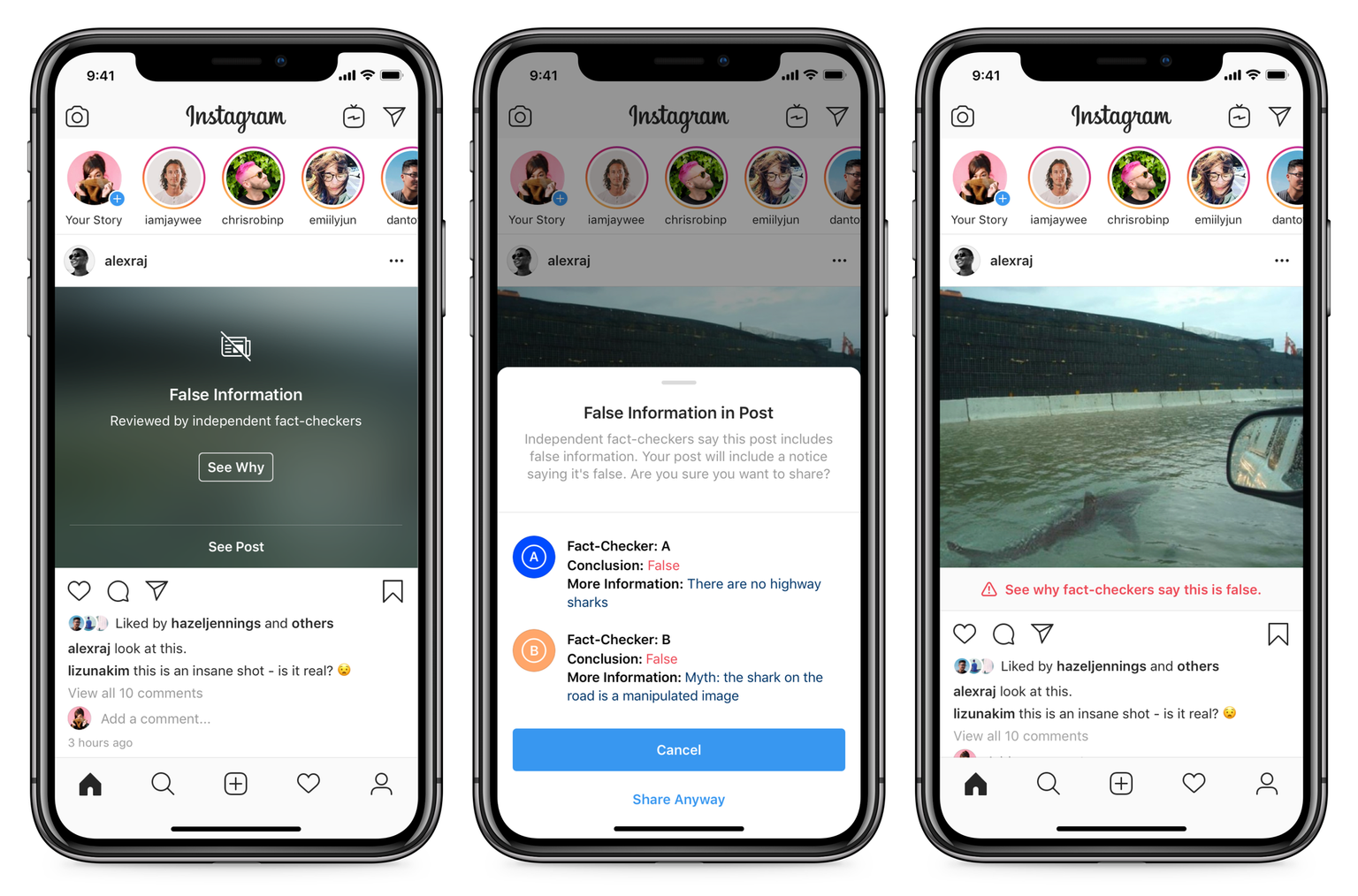To tackle such emerging threats, Instagram had started working with third-party fact-checkers in the U.S. to reduce the flow of fake news and misinformation on its popular social media platform. According to new reports, it appears the company is expanding its fact-checking program globally to assess and rate the false information of shared photo or video content on the platform. Instagram is using third-party fact-checkers to examine feed, stories, profile, and direct messages that it believes might comprise fake information; these fact-checkers confirm the trustworthiness of the content and decide whether the post falls under the category of false or misinformation. For any post or story that is marked by the fact-checkers team to be ‘factually incorrect’, the images are blurred with a ‘False Information’ warning. Right underneath the warning label is an option to see why the image has been marked as blocked. If you click on that, you will be shown details on who the fact-checker, what is the conclusion on the authenticity of the content in the post, and more information that will explain why the content may not be true. After been cautioned that the content is fake, you can still see the image/video by shutting the fact-checker pop-up and tapping on the ‘See Post’ option at the bottom of the post. According to the company, if the content has been rated as ‘false,’ by a fact-checker agency, It will reduce the visibility of the post by removing it from the Explore and hashtag pages. In light of this, the company will label identical or factually incorrect content to reduce its distribution on the platform. These applied labels will appear to everyone around the world viewing that particular feed or stories – so users who are scrolling through that content can better decide for themselves what to share, read, and trust. Read More: Best Ways To Check Who Viewed Your Instagram Profile Instagram is also using “image-matching technology” to locate any future instances of this false content and apply the same label, helping reduce the flow of misinformation. Moreover, if something is marked as false or partly false content on its parent, Facebook Inc., the company will automatically label identical content if it is shared on the Instagram platform (and vice versa). Instagram says that it uses a combination of feedback from its community & technology to decide which posts, videos, and stories should be sent to third-party fact-checking agencies for review. In May of the last year, the company added a “False Information” feedback feature that helped them to better identify, review, and label potentially false information. Instagram’s expansion of the limited fact-checking program is considered to be an important step in the ongoing fight against false or misinformation on the platform. For more detailed information, visit the Instagram Help Center.
